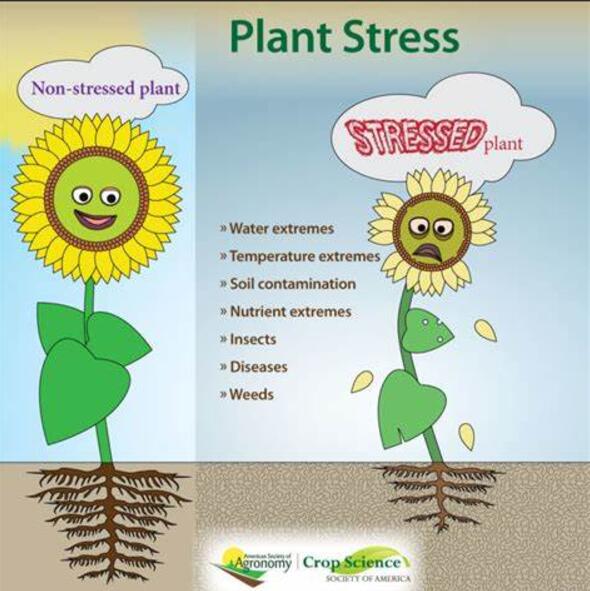过表达 CrSMT 基因可提高棉花抗过氧化能力,从而增强对盐胁迫的耐受性
IF 6.8
Q1 PLANT SCIENCES
引用次数: 0
摘要
盐胁迫是影响作物产量和植物地理分布的重要非生物胁迫因子。盐胁迫会对棉花的分子、生化和生理过程产生负面影响,导致植物生长和发育受抑制,严重时会导致植物死亡。本实验在棉花 R15 中过表达了从单细胞真核生物衣藻中分离出来的 CrSMT 基因。获得了两个转基因品系 L17 和 L25。用 200 mM NaCl 进行的实验表明,CrSMT 转基因棉花对盐胁迫的耐受性增强。RNA-seq 分析显示,CrSMT 在棉花中的过表达导致合成了大量对盐胁迫有反应的次生代谢产物。野生型与转基因品系之间的相关性分析表明,CrSMT的过表达不会影响棉花的生长、农艺性状和纤维质量。CrSMT的功能有望提高植物对非生物胁迫因子的耐受性。本文章由计算机程序翻译,如有差异,请以英文原文为准。
Overexpression of CrSMT gene enhances salt stress tolerance by improving cotton peroxidation resistance
Salt stress is an important abiotic stress factor affecting crop production and plant geographical distribution. Salt stress negatively impacts molecular, biochemical, and physiological processes in cotton, resulting in inhibition of plant growth and development and, in severe cases, plant death. In this experiment, the CrSMT gene isolated from the unicellular eukaryote Chlamydomonas reinhardtii was overexpressed in cotton R15. Two transgenic lines, L17 and L25, were obtained. Treated with 200 mM NaCl experiments showed that the CrSMT-transgenic cotton had enhanced tolerance to salt stress. RNA-seq analysis revealed that CrSMT overexpression in cotton resulted in the synthesis of a large number of secondary metabolites responsive to salt stress. Correlation analysis between the wild type and the transgenic lines revealed that CrSMT overexpression did not affect the growth, agronomic traits, and fiber quality of cotton. The function of CrSMT holds potential to improve plant tolerance of abiotic stress factors.
求助全文
通过发布文献求助,成功后即可免费获取论文全文。
去求助
来源期刊

Plant Stress
PLANT SCIENCES-
CiteScore
5.20
自引率
8.00%
发文量
76
审稿时长
63 days
期刊介绍:
The journal Plant Stress deals with plant (or other photoautotrophs, such as algae, cyanobacteria and lichens) responses to abiotic and biotic stress factors that can result in limited growth and productivity. Such responses can be analyzed and described at a physiological, biochemical and molecular level. Experimental approaches/technologies aiming to improve growth and productivity with a potential for downstream validation under stress conditions will also be considered. Both fundamental and applied research manuscripts are welcome, provided that clear mechanistic hypotheses are made and descriptive approaches are avoided. In addition, high-quality review articles will also be considered, provided they follow a critical approach and stimulate thought for future research avenues.
Plant Stress welcomes high-quality manuscripts related (but not limited) to interactions between plants and:
Lack of water (drought) and excess (flooding),
Salinity stress,
Elevated temperature and/or low temperature (chilling and freezing),
Hypoxia and/or anoxia,
Mineral nutrient excess and/or deficiency,
Heavy metals and/or metalloids,
Plant priming (chemical, biological, physiological, nanomaterial, biostimulant) approaches for improved stress protection,
Viral, phytoplasma, bacterial and fungal plant-pathogen interactions.
The journal welcomes basic and applied research articles, as well as review articles and short communications. All submitted manuscripts will be subject to a thorough peer-reviewing process.
 求助内容:
求助内容: 应助结果提醒方式:
应助结果提醒方式:


